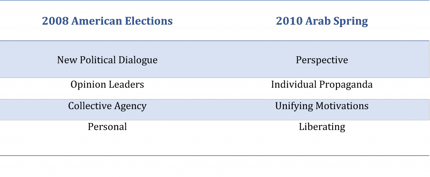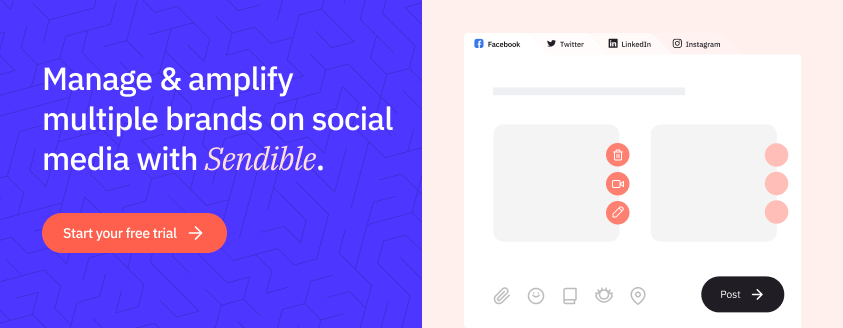Sendible insights Social Media’s Undeniable Influence On World Events: What This Means For Business
Looking back two world events unravelled off the wheels of social media and both were political - Obama’s rise to presidency and Mubarak’s fall.
Social media played a role in different parts of the world for opposing reasons. Why was Twitter and YouTube so important in the American elections and Spring revolution? And how do these drastic events inform social media agents?
The political is personal and so is social media. Obama and his election team quickly adapted in the same way JFK had done with television. A user-friendly website was set up, barackobama.com, encouraging voters to create blogs, post photos and form groups that brought in significant traffic in the form of articles, videos, blogs and even phone calls. This was channelled through Facebook and Twitter creating more buzz. Obama used Twitter to feed his debates with public opinion, on issues close to home such as the economy and employment.
Two years later a different kind of buzz would take place. The Arab Spring spread across the region very quickly. There were different phases to the revolution. The first was to gather supporters and disseminate information which would then build and drive a group of fighters towards real change in Tunisia, Egypt, Libya and Yemen. Dictators and rogue rulers were toppled off their seats as social media voices united in a storm to take over. YouTube videos of victims and fighters communicated the raw reality fast and drove citizens into action.
Despite these two strikingly different events, a few points can tie their developments together.
Why should social media experts care?
If we apply the table contents directly into a social media strategy, we don’t necessarily encounter anything new. Driving online traffic requires Information, Influencers, a Community and a Friendly approach.
Nevertheless these world events do shed some light on how social media works- three points in particular. Individuals naturally group for a common cause, it gives a real sense of purpose. They want to impact results that matter and they love information.
What does this mean for online marketing campaigns?
Even if people are not interacting online, they are listening and soaking up your online presence, forming latent judgements as they go along. For this reason, every post counts regardless of its outcome.
Staying relevant
Find out your audience’s real interests. Sendible, social media management software, is integrated with FullContact and Klout. It displays your influencers’ topics of interest and benchmark topics, including scores on how influential they are online. Information is also gathered on their influencers and who they influence in turn. Social media agents can gain a real bearing on where they can catch attention the most.
Representing a cause
Give your customers the opportunity to make a difference with each purchase, and ask them which charity they would like to support this time. The ethical responsibility of businesses does count, as seen before with Fair Trade.
Otherwise, generally ask for their opinion that can directly impact change in the product. It can be powerfully engaging.
Bring the research and development team closer to consumers and solidify your external relationships. Walkers received attention with their Do Us a Flavor campaign, allowing consumers to choose their own flavour for sale on the market.
Knowledge is power
As previously mentioned people love to gain awareness of themselves and their environment. Sendible uses smart queues, where multiple users can schedule posts to keep the flow of information interesting. Be sure to tell them as much as you can, share insights as you would with a friend to discuss.
Text copied!



